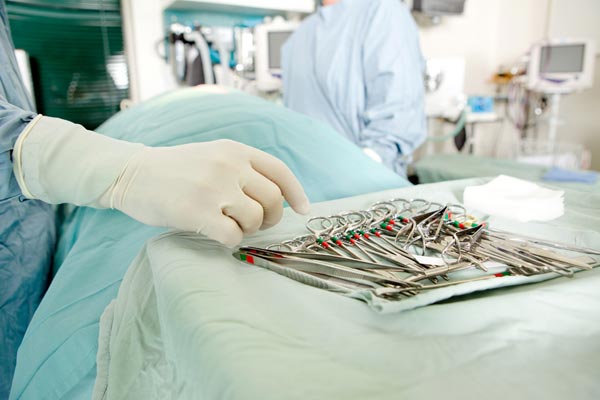Surgeon's Contaminated Hands Infect Patients

A surgeon at a Los Angeles hospital spread bacteria from his hands to his patients during heart surgeries, causing infections, according to news reports.
The surgeon, who was not identified, had inflammation in the skin of his hands when he operated caused by staph bacteria, according to the Los Angeles Times.
An investigation by the hospital, Cedars-Sinai Medical Center, found that five of the surgeon's patients were infected with staph, and had developed a condition called endocarditis, or inflammation of a heart-valve lining, the Times said.
The patients' infections appear to have arisen because tiny tears formed in the surgeon's gloves during surgery, creating a passageway for the bacteria. To treat the infections, four of the patients required additional surgeries, and one was given antibiotics. In more than 60 other patients treated by the same surgeon, no infections were found.
There are no national rules against surgeons operating with inflammation, although the doctors cannot operate when they have open wounds, Dr. Rekha Murthy, medical director of epidemiology at Cedars-Sinai,, told the Times.
The hospital now requires surgeons to change their gloves more frequently, said Dr. Harry Sax, vice chairman of Cedars-Sinai's department of surgery.
The news comes a few weeks after the hospital reported progress in reducing surgical site infections for patients undergoing colon surgeries, according to a release from Cedars-Sinai. Surgeons reduced infections in these operations by more than 60 percent after adopting a new protocol, which required that the surgical team change gloves and gowns before closing the patient's surgical incisions.
Sign up for the Live Science daily newsletter now
Get the world’s most fascinating discoveries delivered straight to your inbox.
Studies suggest antibiotic-resistant staph infections among hospital patients are on the rise. One study in August found that from 2003 to 2008, the rate of methicillin-resistant Staphylococcus aureus infections increased from 21 per 1,000 patients to 42 per 1,000 patients.
Follow Rachael Rettner on Twitter @RachaelRettner, or MyHealthNewsDaily @MyHealth_MHND. We're also on Facebook & Google+.

Rachael is a Live Science contributor, and was a former channel editor and senior writer for Live Science between 2010 and 2022. She has a master's degree in journalism from New York University's Science, Health and Environmental Reporting Program. She also holds a B.S. in molecular biology and an M.S. in biology from the University of California, San Diego. Her work has appeared in Scienceline, The Washington Post and Scientific American.









